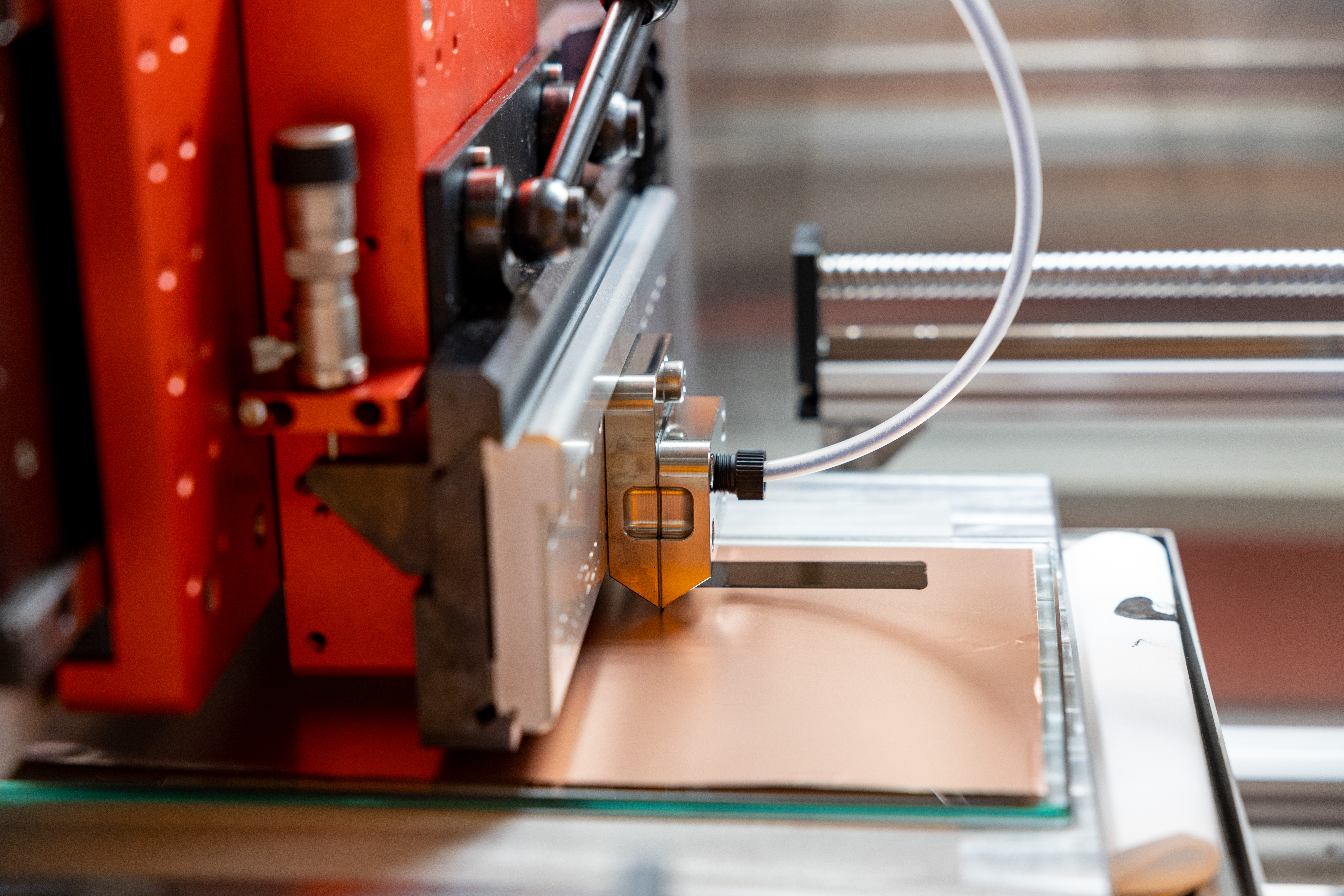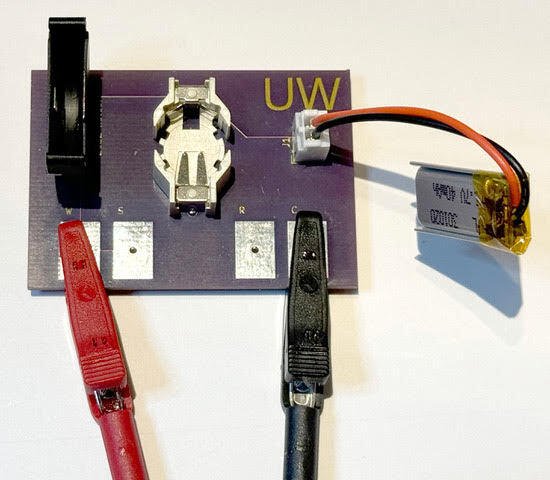By Ro Stastny
December 2, 2024

A battery electrode coater is one of the machines used in the Washington Clean Energy Testbeds, where professional program students will complete their culminating capstone for the Graduate Certificate in Battery Engineering, Materials and Manufacturing. Photo by Matt Hagan
UW ChemE has taken on the task of developing new professional certificate programs that will help working engineers fill critical knowledge gaps amidst new emerging industries and accelerating technologies.
As a discipline, chemical engineering has valuable applications across every major impact area in science and technology. But with a world where new industries like clean energy, biotechnology and artificial intelligence are becoming central to making continued advancements, some working professionals may find it challenging to adapt in their career if they earned a chemical engineering degree more than a decade ago.
Unlike traditional graduate degrees, these new programs are designed to be structured for a working engineer and are laser-focused on industry-specific applications, allowing professionals to build a highly customized set of skills aligned with their individual goals. These certificates are part of a broader collection of professional development programs created by the University of Washington College of Engineering, giving participants the flexibility to earn credentials necessary to advance or change careers while maintaining a full-time work schedule.

“Our faculty are excited to help participants learn to solve problems with tools and technologies that barely even existed five to 10 years ago, let alone when most working engineers were last in a classroom.”
Fully charged

The interface board designed by Adler, to be used with the PalmSens EMStat4S as part of the at-home lab equipment that students will use during the certificate courses. This offers remote learners an easy way to perform hands-on tests with various kinds of batteries. Images provided by Stu Adler.
In 2024, chemical engineering professors Stu Adler and Eric Stuve piloted new battery courses for a professional program designed to fill critical skill and knowledge gaps as the battery industry booms and more workers are needed to meet demand. A survey of industry engineers conducted by NAATBatt in 2021 found that most participants lacked necessary skills in electrochemistry and manufacturing of battery materials. Additionally, surveyed engineers expressed their desire for more hands-on training opportunities in the area of battery engineering.
The University of Washington is well positioned to help fill this gap through collaborations between UW ChemE and the Washington Clean Energy Testbeds. Using the data they collected from industry outreach and surveys, Adler and Stuve have developed a Graduate Certificate in Battery Engineering, Materials and Manufacturing, which is set to welcome its first cohort in 2025. This one-year program specifically addresses the areas of battery knowledge most lacking among chemical engineers, starting with fundamentals of battery electrochemistry and design and leading up to full-scale battery manufacturing. ChemE faculty have also brought hands-on training components into an online, remote learning environment by assembling at-home lab equipment for students to use throughout their courses.
Adler and Stuve have outlined a culminating two-week intensive lab experience for the curriculum, hosted at the Washington Clean Energy Testbeds in Seattle. This capstone brings the advanced battery course topics to life with an on-site, full-scale battery manufacturing project.
Harnessing the power of data
Artificial intelligence (AI) and machine learning (ML) are helping engineers make critical advances in the clean energy, chemical, semiconductor and biomanufacturing industries. With the growing abundance of data generated by automation, engineers can incorporate these new predictive tools to aid in data interpretation and decision making at scale.
UW ChemE’s industry partners are seeking these new data science skills and expertise and see them as essential for professional engineers to remain competitive in the workforce. ChemE currently offers data science degree options for M.S. and Ph.D. students, which enable students pursuing advanced degrees in chemical engineering to add a credential that explicitly acknowledges their expertise and research experiences in the chemical sciences through the application of data science methods including AI and ML, data visualization, statistics, data management, and software engineering.
Over the last year, chemical engineering professor David Beck has led the development of a new graduate certificate to expand access of this data science curriculum to working chemical engineers. The Graduate Certificate in AI/ML-driven Molecular and Processing Engineering will cover applications of artificial intelligence and machine learning to molecular and process systems in a remote, project-based setting using the language of chemical engineers.
“Engineers will practice the concepts of research, software design and engineering, and human centered design so that software tools built using AI and ML to support research are sustainable, reproducible and user-centered,” said Beck.
This professional certificate will be opening applications in Spring 2025.
A new avenue for learning
With these two professional certificates underway and ideas for more in the pipeline, the leading ChemE faculty are committed to keeping course materials current by incorporating methods from their active research programs. This level of access will enable professional learners to engage in, and stay on top of, advancing industry challenges and solutions in a rapidly changing world.